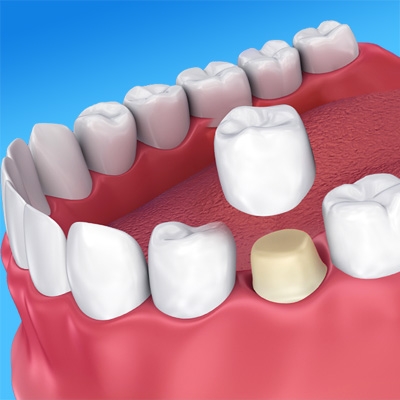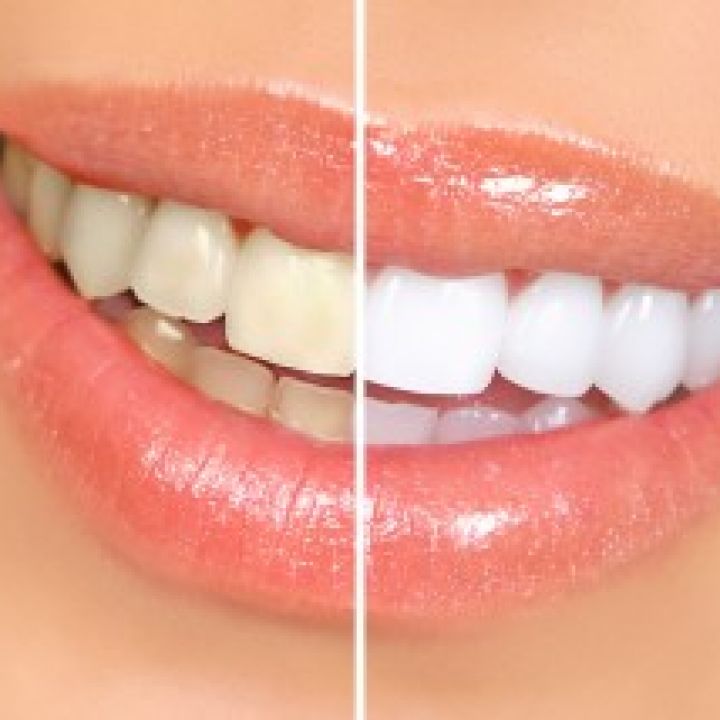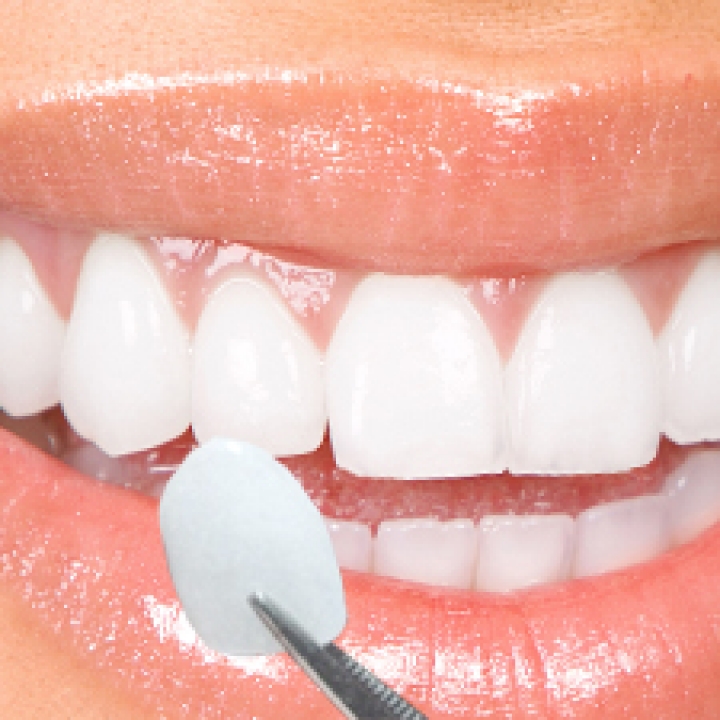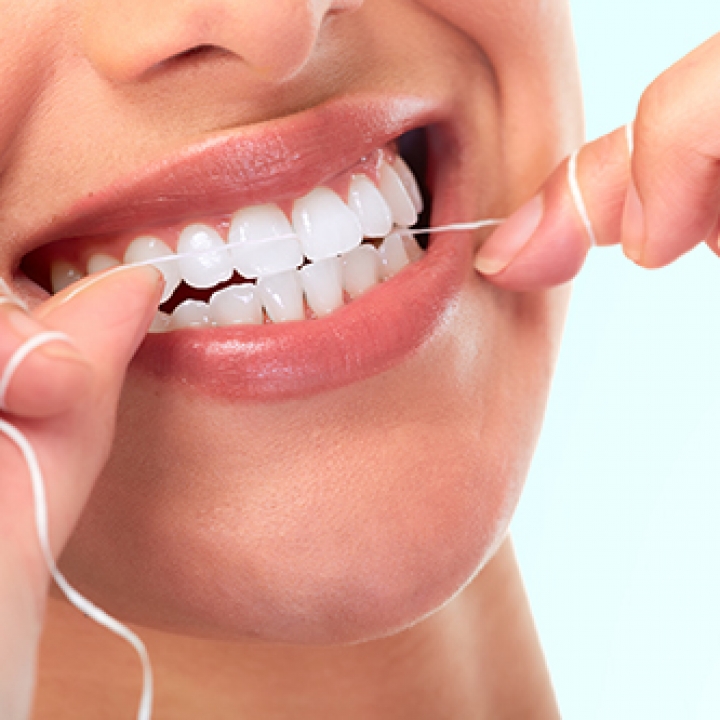Dental Crowns

If you are reluctant to smile because of yellowed, injured, cracked or chipped teeth, you may want to consider dental crowns. Dental crowns, sometimes referred to as ' caps', slide over teeth like a jacket, masking imperfections and adding strength to the tooth.
Dental crowns play a big part in Cosmetic Dentistry since it can totally change any tooth to almost any shape, size and alignment. Crowns differ from fillings in that a filling is placed inside a tooth and have walls of tooth surrounding it, whereas a crown fits over the damaged tooth and protects the remaining part of the tooth.
A) Indications for a Dental Crown
Reconstruction
Severely damaged teeth that can't otherwise be repaired in any other way and to replace the visible part of a tooth. If the visible part of a tooth is weakened by an oversized filling, cracks or show signs of weakness, a dental crown is often indicated to reconstruct the tooth to full strength.
Prevention
To prevent fracture of a weak or brittle tooth (often after Root Canal Treatment)
Stability
To re-established the bite by giving the teeth different heights, widths or positions.
Aesthetics
To change the form / shape/ colour /size of teeth
Function
Fringing opposing teeth into firm contact will enhance the chewing capability
B) Types of Dental Crowns
- Acrylic dental crowns
- Metal dental crowns
- Full Porcelain Dental Crowns (Cosmetic)
- CAD/CAM or CEREC Crowns have taken over this type of crown and all technology is driven in this direction.
- Porcelain with metal support underneath
- Fiber-reinforced resin dental crowns
 |  | |
| Old Metal-porcelain Crown | New Full Porcelain Crown |
Cosmetic Crowns normally refer to full porcelain (non-metal) crowns, because of their highly aesthetic look. Full porcelain crowns emit more light and are therefore more natural-looking. Cosmetic crowns are not only of a superior aesthetic quality, but different porcelain materials are also available to choose from. The modern trend is to create different blends of porcelain and resin to be used in different areas of the mouth combining the perfect mix for strength and aesthetics!
C) Dental Crown Procedure
A) Traditional
First Appointment
- After numbing the mouth, the tooth gets prepared by doing a 360º preparation to ensure enough space for the fabrication of the dental crown
- Impressions are taken to be sent away to a dental laboratory to cast plaster models in order to fabricate the dental crown
- A temporary crown/restoration is fitted to protect the naked tooth until the next visit.
Second Appointment
The temporary crown/restoration is removed and the new dental crown is fitted.
B) CAD/CAM (Same Day Dentistry)
ONLY ONE Appointment
- After numbing the mouth, the tooth gets prepared by doing a conservative preparation (biomimetic principles) to ensure enough space for the fabrication of the dental crown
- Digital Impressions are taken and send to the CEREC unit where the dentist designs the crown before the information is sent to the milling unit for immediate manufacturing.
- The crown is fitted to the tooth all in 1 visit. The whole procedure takes under 2 hours to complete.
D) Cost For Dental Crowns
The cost of Dental Crowns will vary depending on the type of Dental Crown material used. More aesthetic (full porcelain) will cost more, but will look much better and more natural than metal-porcelain crowns. To prevent the 'dark-line' appearance on front crowns, full porcelain crowns are indicated. The latest modern way is to make these crowns and veneers in 1 visit with special CAD/CAM technology. This is the future of dentistry and opens up an overwhelming new world of possibilities.
![]() Care For Dental Crowns
Care For Dental Crowns
Cleaning Dental Crowns are very important since the underlying tooth is still susceptible to decay, and proper general cleaning and hygienic procedures are advised:
- Daily brushing and rinsing with a fluoride mouth rinse (Dentyl / PLAX/ Listerine)
- Brush gently where the gum meets the dental crown
- Special soft pics are also optional in the cleaning process
- Flossing is important to keep the dental crown margins free from plague accumulation
- Avoid biting on hard objects like ice or sticky foods
- Have your dental crowns check regularly with x-rays for early detection of decay
If you think you might benefit from dental crowns or veneers, please contact us and fill in the form below to see how this can change your life.






